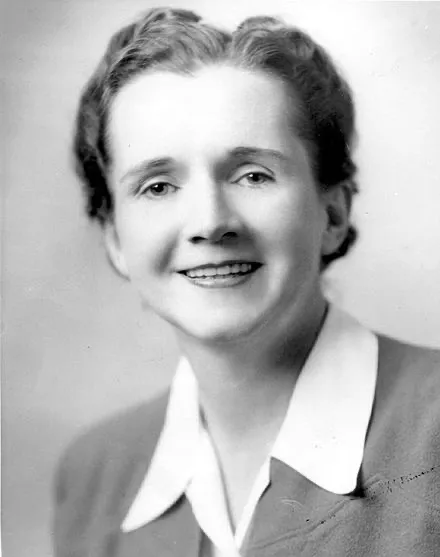
(Image from the US Fish & Wildlife Service)
Many people in this world owe their lives to Rachel Carson. An American marine biologist, writer and conservationist who ripped the bandaid off of the scab of lies and misinformation propagated by chemical companies about the effects that the pesticides had on our world, leading to the banning of DDT and other carcinogens. She is widely heralded as the initiator of grassroots environmentalism around the world.
She’d been enthralled with oceans and sea life since her childhood, and made it her life’s education and work at the U.S. Bureau of Fisheries. Her early research and findings became part of a weekly educational broadcast called Romance Under The Waters. Some brochures, articles and essays she wrote for publication were evolved into books on the ocean floors in Undersea. She wanted to take this momentum and work full time as a naturalist, but funding and positions were rare, and her need to provide family financial support delayed her efforts.
In 1945 she began writing about the ecological and safety problems of a new insect repellent being assessed called Dichlorodiphenyltrichloroethane, or DDT. That and other topics did not gain traction with publishers, though, and it would be another six years before her book The Sea Around Us was published. It remained on the bestseller list for 86 weeks and won numerous awards. More importantly, it gave her the financial independence to write full-time on her life’s passions. The Edge Of The Sea focused on coastal ecosystems along the American Eastern Seaboard, and her work was again popular and praised. In 1957, she focused her attention on synthetic pesticides that the U.S. Department of Agriculture was approving for general use, including increased usage of chlorinated hydrocarbons and organophosphates. Pesticides and insect eradication became her life/’s work from then on.
Chemical companies spent millions to discredit her findings and print countering propaganda, but compelling parallel studies on the ill effects like cancers caused by these chemicals helped sustain her motivations and support from the scientific community. In 1962, her book Silent Spring was published, and is widely credited with starting the environmental movement in the USA. The books spoke to the many years of research she had been involved in, and led to the banning of many harmful products like DDT. By then, the USDA had joined the chemical industry to discredit her findings, but the bandaid had been ripped off successfully, and corporate and government suppression could no longer contain the swelling public concerns.
Carson died from cancer in 1964, and will always be memorialized and the women who drove the approval and use of dangerous petrochemicals into the open, and from whose work grassroots environmentalism surged. The Reagan Administration of the 1980s rolled back many of the enacted policies she had been responsible for. The subject of human interest vs. corporate profitability remains around the work, thanks to this woman’s efforts and the organizations and institutions that have sprung up with her purposes in mind.
I strongly urge you to read Silent Spring, which has been published in eleven languages.
Find more at
https://www.rachelcarson.org
https://www.carsoncenter.uni-muenchen.de/about_rcc/archive/mission/rachel_carson_bio/index.html